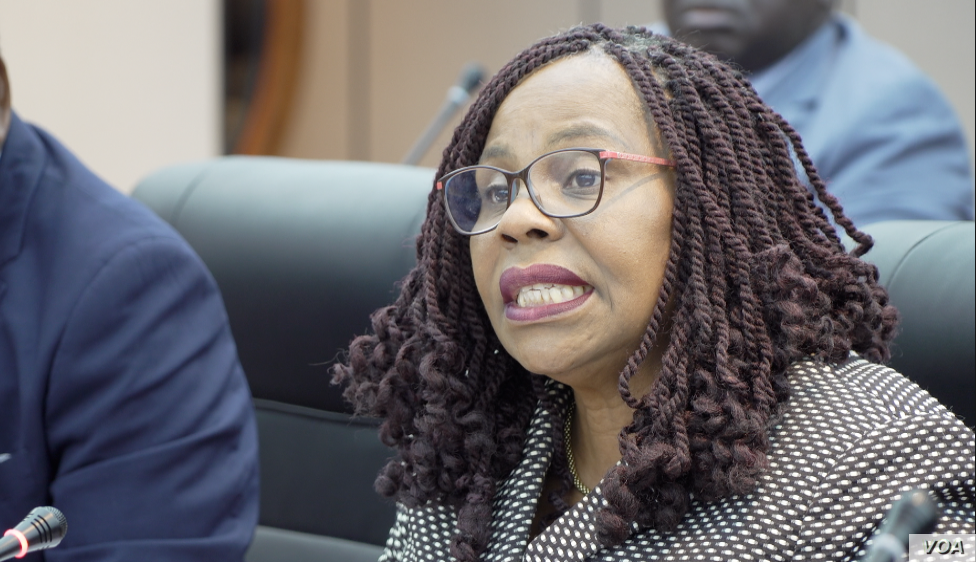
GENDER-BASED violence (GBV) remains under-reported in Zimbabwe due to various reasons, which include social pressures and lack of information regarding the legal framework, a cabinet minister said this week.
Speaking on Wednesday in Harare at the Media Institute of Southern Africa (Misa) event, commemorating 16 days of activism against GBV, Women Affairs, Community, Small and Medium Enterprises Development minister Monica Mutsvangwa urged all stakeholders to build a society free from GBV.
“May I also make it clear that gender-based violence, child marriage and other harmful practices are not linked to a single population group, religious belief or cultural practice,” Mutsvangwa said.
“Instead, GBV cuts across the social strata and, therefore, it is imperative that we address it at every level where it is found.
“It is our responsibility as duty bearers to ensure that we create a society that is free from gender-based violence as this is key to inclusive development.”
In Zimbabwe, about one in three women aged 15 to 49 have experienced physical violence and about one in four women have experienced sexual violence since the age of 15, according to the United Nations Fund for Population Activities.
As part of the prevention strategies, Mutsvangwa said her ministry continues to conduct awareness campaigns across the country.
“This is part of the prevention strategy where media comes in strongly by ensuring that people access information through various platforms, especially those platforms that are easily accessible to women and girls, who in most of the instances are affected by GBV,” she said.
- Making every day that of activism against GBV
- 16 days not enough, says Ruvheneko
- Churches best positioned to deal with GBV
- The style interview: Tozeza Baba addresses gender-based violence
Keep Reading
“Despite all these efforts, GBV remains under-reported due to various reasons, which include among others, the availability of GBV services, social pressures from relatives and lack of information regarding the legal framework.”
Zimbabwe Independent editor Faith Zaba, who addressed the same event, said violence against women has moved to online spaces such as Facebook and X (formerly Twitter).
“This is worrying. It is the reason why there are few women entering politics and few women engaging on social media. It is also the reason that we see few women tackling controversial topics in the media,” Zaba, who is also a trustee at Misa, said.
“Women have found themselves disproportionately targeted. The attacks are often laced with misogyny and an insidious undercurrent of sexualisation. They are nasty and harsh, a reflection of a society that has, for too long, struggled to accept women in positions of power and influence.”
She urged the media, content creators, and regulatory bodies to work together to create ethical guidelines that promote positive portrayal of women.
These guidelines should discourage depicting women as victims and instead, highlight their resilience, strength, and various contributions to society.
“The media, as a powerful storyteller, bears the responsibility of challenging stereotypes rather than perpetuating them. It has the ability to amplify voices, champion positive narratives, and promote gender equality,” Zaba said.
“By doing so, the media can serve as a catalyst for change, fostering a society where women are not objects of violence but architects of their own destinies.
“The ascension of young women to top posts should be celebrated as a beacon of hope for posterity. It should signify progress in dismantling patriarchal norms.”
According to statistics, 73%, particularly women in the media industry have been sexually harassed at their work places and perpetrators have been allowed to act with impunity.
“What is happening in the media mirrors Zimbabwe’s society. Sexual harassment is an insidious problem that has pervaded every corner of society,” Zaba said.
“For far too long, we have ignored, and downplayed this form of violence, perpetuating a culture of silence and suffering.
“Perpetrators have been allowed to act with impunity.”
Mutsvangwa said, through collaboration with other stakeholders, a number of service centres for GBV survivors have been established across the country.
This collaboration, according to her, has seen the establishment of one-stop centres and safe shelters across the country.
She said these centres have gone a long way in ensuring that survivors get GBV services and they also provide protection services to those at risk of further violence from their partners.
“We implore on our partners to support us towards sustaining these centres as their operations have greatly improved access to justice by survivors,” she said.
Mutsvangwa said her ministry has coordinated the review of the National Strategy for Preventing and Addressing Gender-Based Violence.
This a strategy document that will provide guidance to all stakeholders towards GBV programming.
“This strategy will be launched this month and we shall all be running with it and ensuring that we implement the various strategies as guided by the document,” she said. “Implementation of this strategy will go a long way in addressing GBV in the country. This year’s national commemorations are being held under the theme: “Unite! Invest in Prevention of Violence against Women and Girls!”






